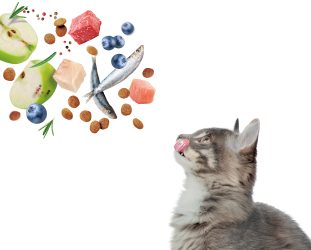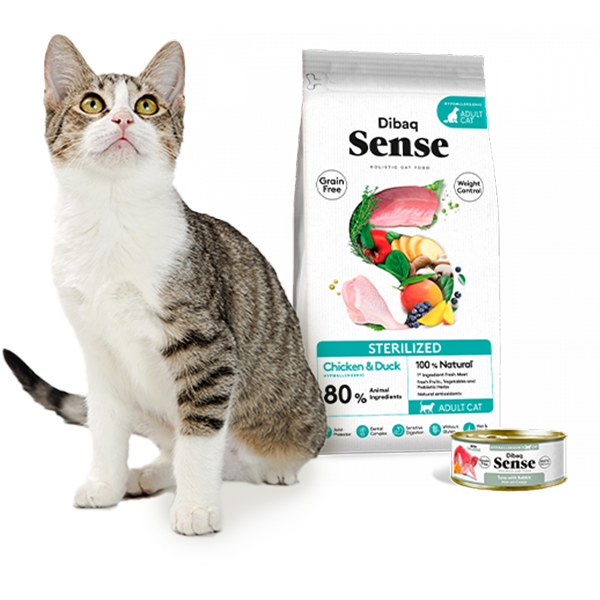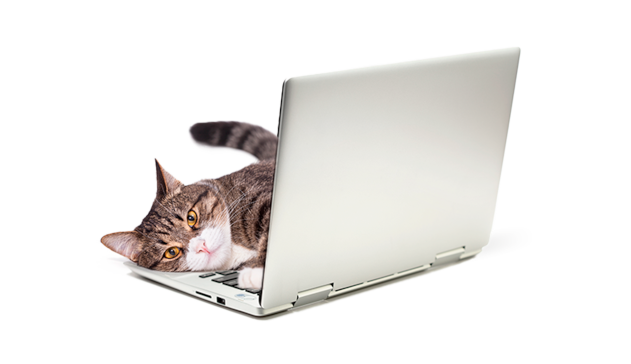A cat in heat: symptoms, care and the best food for cats in these cases
Adopting a cat is a great adventure that will make you face many challenges in your home. An example? The times of heat. You have to be aware that living with a kitten in heat can be complicated at times, but there is nothing you can't survive. You simply need to take into account several factors, such as your pet's diet, as it is essential that you offer him the best cat food so that he remains healthy and strong.
Today we tell you a few things you should know about feline heat to understand your kitten, take care of her as she deserves and have a happy coexistence at home. Keep reading!
What is jealousy?
There are many people who still have this doubt, but it's time to learn! Heat is part of the reproductive cycle of cats: during this period, felines are sexually receptive to males and their body goes through the ovulation process. It's that simple!
When does the first heat appear?
As in all female mammals, cats have their first heat when they reach puberty. This is usually, in general, between 8 and 10 months of age... although it is not 100% certain: for some cats it can arrive earlier (from 4 months).
It all depends on the characteristics of each animal, its breed, its weight, its level of development and its way of life. In addition, there may also be external factors that influence the appearance of the first heat, such as proximity to a male cat or the hours of daylight that the kitten faces.
Be that as it may, from the moment the first heat appears, the cat is already fertile and can become pregnant if she mates with a fertile male.
What symptoms arise during heat?
Unlike many other animals, cats do not bleed during this period. However, they suffer from other symptoms that can help owners recognize the situation.
Some of those symptoms are:
-
Pampering.
The kittens become more affectionate and continually seek contact with their owners, even insistently. It doesn't matter if your pet was already affectionate before, during these stages it will be much more affectionate.
-
Loud meows.
Meows during heat are not the usual meows. They become much more insistent, strong and desperate, with the aim of warning the males of their receptivity. This is probably the most annoying behavior change! -
Mounting position.
In some situations, when cats are in heat, they adopt a curious position when you pet them called “lordosis” (back arched, lower back elevated, and tail tilted). Although it may seem like a position of submission, it is actually the mounting position (female kittens prepare to interact with males).
-
Rub with everything
Another behavioral change of a kitten in heat is that she will seek to rub her body everywhere: walls, corners, furniture, floor, carpets... The reason is simple: kittens seek to leave their scent in as many places as possible to conquer any male that passes by through smell.
-
Urinating outside the litter box.
Kittens in heat usually mark the house and urinate in some corners. In this way they leave olfactory and chemical signals for the males to detect. -
Licking genitals
During heat, the sexual organs are more inflamed or swollen and, due to the discomfort this causes, kittens may lick their genitals more frequently. -
Loss of appetite.
Although it is not common in all cases, it is true that some cats may lose their appetite and eat less. Don't worry if this happens in your house! -
Escape (or at least try)
When kittens are in heat they want to find a male and may try to escape more than normal during this period. Try not to leave open windows or gaps where it can escape!
What can we do to improve our little girl's situation?
Many owners look for ways to comfort their cats during heat... and although there are as many solutions as there are personalities, we can give you some tips that may help. Check out these tips!
-
Give your kitten more pampering and affection, especially if she demands it.
-
Play with her, since leisure will help her forget about the inconveniences.
-
Put catnip near their bed or food. Kittens seem to like its smell and even calm them when they are nervous.
-
Place your little companion on a warm blanket, or a seed warmer, because the heat seems to calm you down.
-
To avoid marking, it is recommended to always keep the litter box very clean and avoid cleaning the house with ammonia (the smell may be reminiscent of urine and your pet may feel the need to mark in that place).
-
Keep your kitten strong with the best cat food such as the Fitmin Purity range, Dibaq Naturally Better (DNM) products or Dicat Up
-
And if your cat becomes pregnant, do not abandon the litter if you do not want to have more kittens. Be responsible and try to find good and suitable homes for the kittens.
But you also have another recommended option: sterilizing your kitten. With it you will ensure that sexual behavior disappears completely, along with urine marking, uncomfortable meowing and escape attempts. And there will be no unwanted kittens in the house!
And here we finish for today! We hope that this text has helped you understand the feline world a little more. Now it's your turn to enjoy your little companion and spend good times with her.
Share this content













